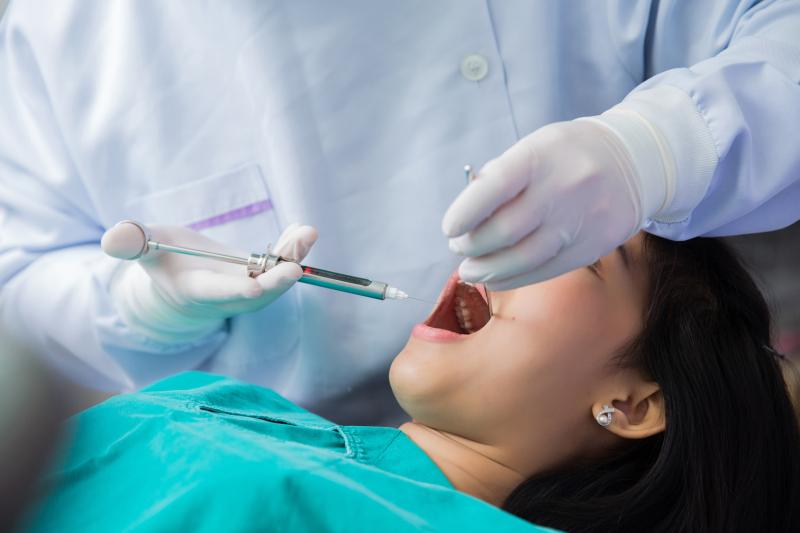 There are only about 31 dentists per 100,000 people in the city.
There are only about 31 dentists per 100,000 people in the city.Children with high dental anxiety are more likely to develop dental diseases, which, in turn, negatively affect the family’s quality of life, a recent study has found.
Accessing the 2013 Child Dental Health Survey, researchers identified 4,916 children, of which 2,549 were 5-year-olds and 2,367 were 8-year-olds. Dental anxiety was measured using the visual analogue scale, as filled in by the parents. Outcomes included scores on the decayed missing filled index teeth (DMFT), the presence of active decay and the presence of soft tissue lesions, among others.
The participating children’s dental anxiety scores ranged from 1 to 10, indicating anxious feelings ranging from none to extreme. The median score was one, with 57 percent (n=1,304) falling at or below it.
Dental anxiety was a significant predictor of having previous tooth decay experience (B, 1.649; p<0.001), having active decay (B, 1.518; p<0.001) and having signs of oral infections (B, 1.773; p=0.007). Eight-year-olds who belonged to households of poor socioeconomic status were also significantly more likely to have had prior decays or current oral infections.
Moreover, dental anxiety also increased the likelihood of children needing to have a primary tooth restored (B, 1.380; p=0.01) but had no effect on the need to undergo tooth extraction due to decay (B, 1.019; p=0.962).
Notably, dental anxiety also negatively impacted the family’s quality of life (B, 2.278; p<0.001), as did poor oral hygiene behaviours such as not using toothpaste (B, 0.431; p=0.005) and infrequent attendance to the dentist clinic (B, 2.091; p=0.011).